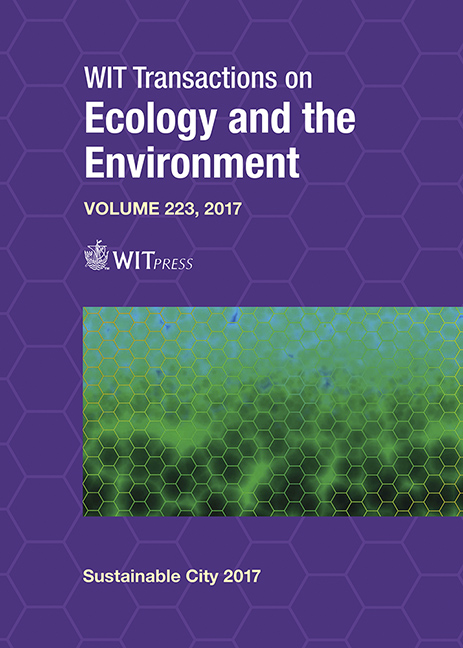THE USE OF THE DSPIR FRAMEWORK TO ESTIMATE IMPACTS OF URBANIZATION ON MANGROVES: A CASE STUDY FROM LA PAZ, BAJA CALIFORNIA SUR, MEXICO
Price
Free (open access)
Transaction
Volume
223
Pages
11
Page Range
459 - 469
Published
2017
Size
470 kb
Paper DOI
10.2495/SC170401
Copyright
WIT Press
Author(s)
GIOVANNI ÁVILA-FLORES, GUSTAVO HINOJOSA-ARANGO, JUDITH JUÁREZ-MANCILLA, OSCAR ARIZPE-COVARRUBIAS
Abstract
The mangrove ecosystem is integrated mainly by halophytes plants that grow on coastal zones of tropical and subtropical regions. This ecosystem provides direct and indirect services for human wellbeing such as food, wood, climate regulation, natural hazard protection, recreation and aesthetic values. However, academic research indicates that more than 35% of world’s mangrove coverage has been lost in the past three decades. The primary drivers of change of cover lost are aquaculture activities and development of urban infrastructure. The objective of this work was to conduct an exploratory assessment of the impacts of urbanization on mangrove communities located in the city of La Paz, Mexico using the Driver-Pressure-State-Impact-Response framework (DPSIR). The assessment was complemented by a Delphi survey to incorporate information obtained from experts and stakeholders. The results indicated that the most important pressing factors on mangrove communities were: tourism, urban growth and waste. However, the data on mangrove cover and conservation status show that the overall situation of mangroves of mangroves in La Paz is “barely adequate,” with communities showing positive and adverse conditions. It is estimated that mangrove communities classified as “Vulnerable” and “Endangered” probably do not generate the same ecosystem services as mangroves classified under the “Near Threatened” and “Least Concern” categories. Protection actions as protected areas, environmental laws, and ecological restoration have helped in the conservation of mangroves in the study area. This work concludes that DPSIR framework is a handy tool to analyze in the first instance the conditions of the mangroves and may be replicable in other regions that have this ecosystem, even in places with little scientific research.
Keywords
coastal development, conservation status, DPSIR framework, drivers of change, ecosystem services, sustainability, wetlands





